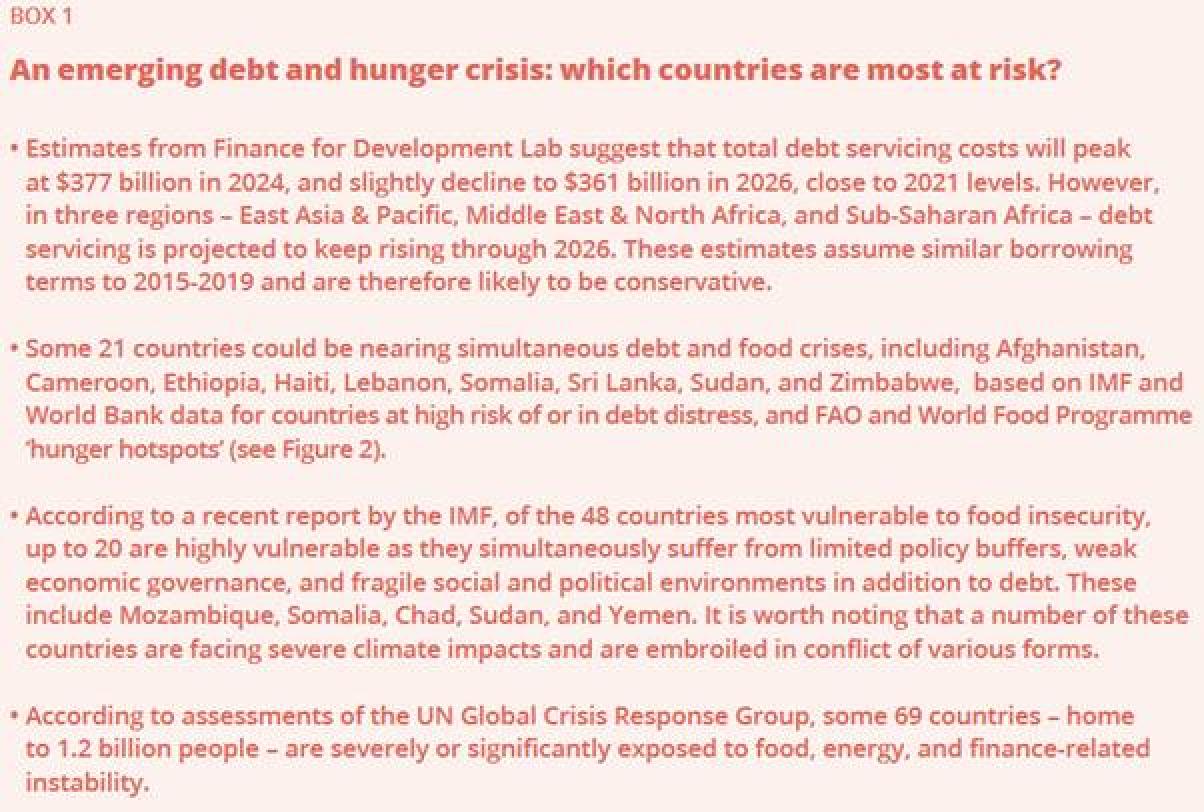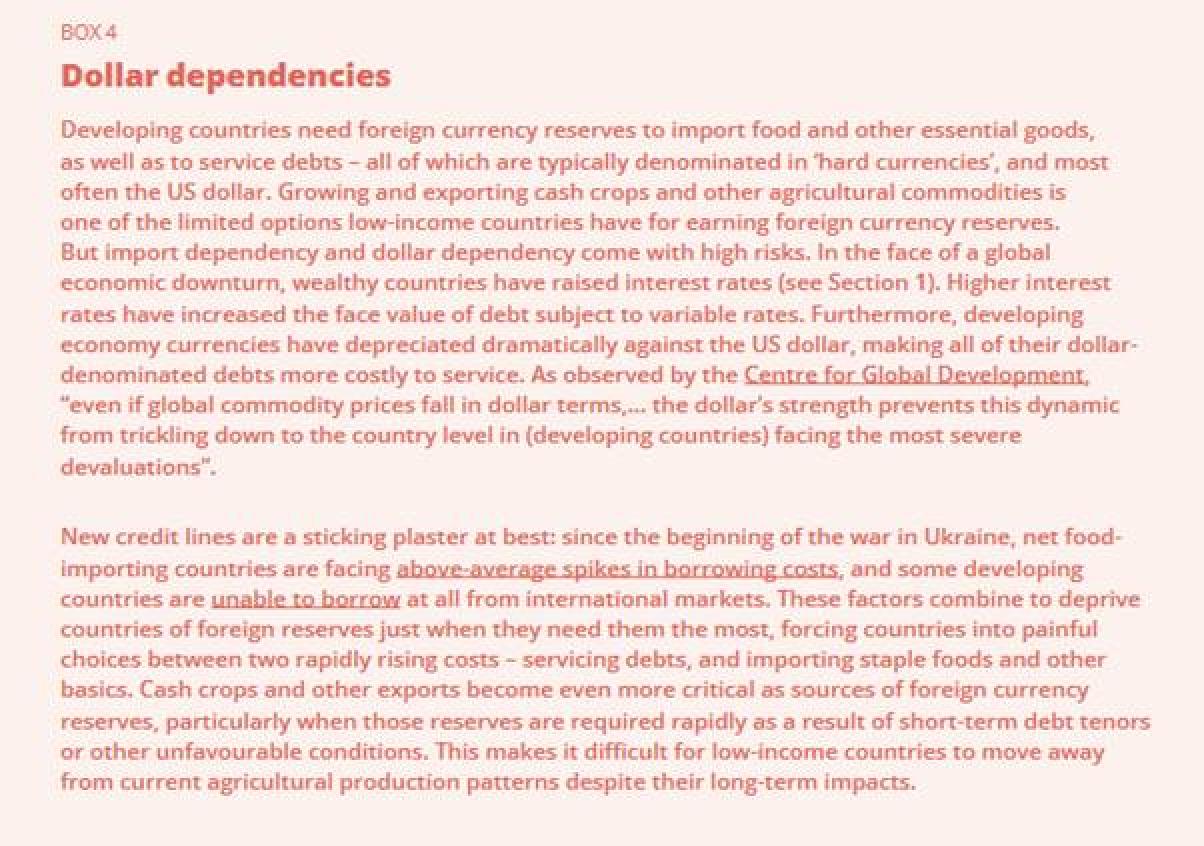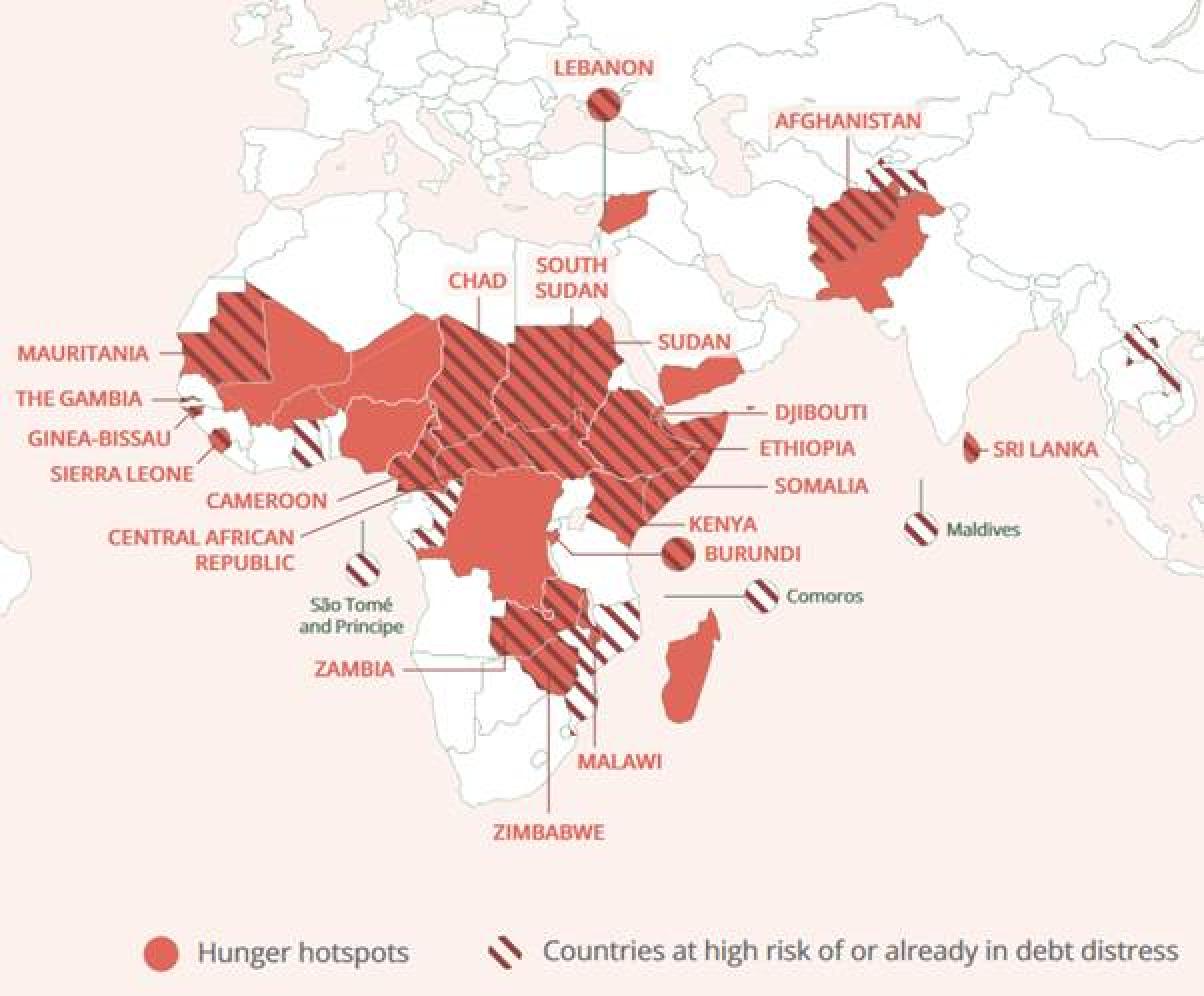The food price crisis is entering a dangerous new phase – a debt crisis that could plunge millions more into hunger. Facing structurally higher costs for imports and debt repayments for the foreseeable future, dozens of low income countries will gradually lose the capacity to address the burgeoning crises they face.
60% of low-income countries and 30% of middle-income countries are now considered at high risk of, or already in, debt distress; some 21 countries are nearing catastrophic levels of debt and food distress. Developing countries saw the costs of servicing their debt increase by 35% in 2022.
Unsustainable food systems are a critical factor behind rising debt and hunger today.
-
Import dependencies, extractive financial flows, boom-bust commodity cycles, and climate-vulnerable food systems are combining to destabilize the finances of the world's poorest countries.
-
Africaʼs food import dependency has tripled in recent decades. This leaves countries exposed to food price spikes like in 2022, requiring them to earn dollars via export crops to pay down their debts — rather than meeting local food needs. As prices spiked over the past year, countries in Sub-Saharan Africa spent an additional $4.8 billion on food imports, despite a decline in total volumes, while the world's 77 'net food-importing developing countries' faced a crippling $21.7 billion in additional costs for only slightly higher import volumes.
-
In turn, unsustainable debt leaves countries critically exposed to shocks and undermines their ability to make urgently-needed investments in climate-resilient food production and food security.
Breaking the cycle of unsustainable food systems, hunger, and debt is vital to comprehensively address this crisis. Debt relief is urgently needed, but not enough. This time around it must go hand-in-hand with transforming food systems and building resilience to climate change – which can reduce food and fertilizer import dependency, hunger and climate vulnerability.



| Publisher | IPES-Food |
| Geographic coverage | Global |
| Originally published | 30 Mar 2023 |
| Knowledge service | Metadata | Global Food and Nutrition Security | Food crises and food and nutrition securitySustainable Food Systems | Food systems transformationindebtednessLower middle income countryFood price crisis |
| Digital Europa Thesaurus (DET) | agricultural tradewar in Ukrainefertiliserclimate changefood industry |
